Editor’s Note: since initially publishing this piece, have heard from several folks connected to this film and broader story with both omissions (things/people that should have been mentioned and commission (things I suggested or were implied that warrant clarification). This current version reflects those updates and in the places where it deviates from the original I have indicated. Thanks to all for the ongoing dialogue around all of these important subjects. J.W.
Last week I was invited to a private screening of a new documentary on Palestinian farmers in the West Bank called Subud.
I haven’t stopped thinking about it since.
One of the directors, Uri Fruchtman, an Israeli documentarian (also the former husband of Annie Lennox) was there, explaining his new feature length rough cut. (Edit:) The other is Bruno Sorrentino who was not with us that night.
(it will likely hit the festival circuit next year and premier on BBC and Al Jazeera)
The film traces the last thirty years of a Palestinian farmer named Ata and his family. Uri began filming Ata’s story that long ago, and recently returned to shoot updates to his situation.
Subud, the title of the film, means “resilience” or “endurance” in Arabic. And Ata, the central character, embodies it, through all sorts of violence and humiliation.
The film opens thirty years ago as Israeli Defense Forces (IDF) forces are bulldozing the new concrete water cistern that Ata and his brother have just borrowed heavily to build. Once complete, it was going to offer them more security against drought, and a better chance to create crop surpluses they could sell at market.
A small entrepreneurial effort to get just a little bit ahead in their precarious desert world.
But the bulldozers ended all that, leaving them indebted and with no way to replace the water. (with Ata’s brother utterly devastated, wailing and weeping as his children and mother look on).
The film then progresses, excruciatingly slowly, through the next three decades.
And always, the story is the same.
Zionist settlers come and trash their tractors, scatter their seeds, slit the throats of their donkeys and livestock, taunt them, threaten their homes, pelt them with stones.
IDF forces occasionally come to oversee the harassment. But like Alabama police in the Jim Crow era, never step in on the side of the Palestinians.
In one instance, a grandmother, whose family had owned their farm for generations, shows the IDF soldiers their documents and title. The solider, a settler himself, laughs, says those papers mean nothing, and tears them up in front of her face.
She replies, saying “we lived with the Turks, the Egyptians, the Jordanians, the British, and never, did any of them say that we have no right to exist here!”
Then another bulldozer proceeds to cave in the centuries old stone terraces and olive trees that surround their farm.
All the while, time lapse images show the growing, bustling settlers town as it expands like an Orange County suburb all around them. From 100,000 settlers, to 300,000, to 500,000, to 800,000.
Often their water supplies are cut off, while lavish irrigation supports year round landscaping in the Jewish settlements. Then, when the Palestinian’s emergency reserves run out, settlers resell the water at 250% markup back to their thirsty neighbors.
It’s brutal.
We see Ata’s daughter go from a wide eyed innocent of 8 years old, to a fraught middle aged mother of seven girls herself. Several of whom chronically wet the bed and have severe attachment disorders.
We see the cycles of humiliation and dehumanization continue, generation after generation.
And the utterly chilling part, is the looming specter of October 7th.
A moment we know is coming.
An inflection point that will make what couldn’t seem worse, much, much worse.
The updated version of the film that Uri showed us finally addresses the Hamas Attacks in the closing 15 minutes. The contrast, from grainy 90s era VHS to crystal sharp 4K footage is jarring.
But Ata, the long suffering farmer, now a wizened old grandfather himself, is still not broken. He reflects “all people have anger. That much is normal. But letting that turn to hate, destroys everything that makes us human.”
When his mother (the one who’d had her land title torn up in front of her and seen her family’s olive groves and livelihoods destroyed) was venting bitterly, Ata asks her, “but surely if an Israeli mother, who loves peace and her children just as much as you, knocked on your door, would you not invite her in and serve her tea?”
Begrudgingly, she admitted that she would host her neighbor. “But I still hate the settlers for what they’ve done to us.”
The film ends with Ata admitting that as long as he has his land, he has hope.
But in the closing credits, the filmmaker discloses that even Ata’s land, which this decades long documentary had gone some way to protecting, is now slated for a settlers’ subdivision.
Even Ata, and his profoundly humanizing subud, or resilience, cannot stand in the face of this onslaught.
***
As the credits rolled and the lights came up, Uri the director asked for reflections. One viewer asked “how is it that this is going on and more of your fellow Israeli citizens don’t protest it?”
Uri replied that many of his friends and colleagues simply don’t know the extent of these operations. And that he’s lost many close relationships from their refusal to consider this might actually be closer to the truth than the stories they see on state news.
The only way he’d been able to get this footage public was via a backchannel from a Christian peace activist organization, who’d been secretly recording these acts for thirty years.
(and check this utterly bonkers piece in Haaretz on “Israel’s New Yoga Nazis”–like our pastel QAnon/Conspirituality peeps, these folks are blending spirituality with hard-Right views)
But what’s super important to realize here, is that this film isn’t a Michael Moore style lefty hit piece.
It’s not polemical at all. Other than it’s choice of subject–one man and his 5 acre farm–it has no editorial point of view.
It simply records what happens over time to this family on that land.
And it’s utterly gutting.
And as much as October 7th hangs over the whole film like a looming storm cloud, so too do the eyes, minds and hearts of those Palestinian children witnessing the violence and humiliation of their brothers, fathers and uncles.
The film never goes there, but you can see the direct line between generations of cruelty and dehumanization, plus the testosterone of an angry adolescence, mixed with the radicalization of an Arafat or a Hamas, as damn near inevitable.
For every wise elder like Sitting Bull or Chief “I will fight no more forever” Joseph, you had a Crazy Horse or a Geronimo determined to go out with a bang.
For every Martin Luther King Jr advocating Christian forgiveness, you had a Malcolm X insisting on liberation “by any means necessary.”
For every Dalai Lama welcoming his Chinese tormentors, you had a young monk in Dharamshala setting himself on fire, (or learning to build a bomb).
It’s never been any different.
But if we’re to make sense of our current moment, including the immediate blockading of food and supplies to Gaza that’s eroding international support for Israel, we have to be able to have a more refined conversation than we’ve been having.
There have to be other positions to take than anti-semitic pro terrorism, vs. patriotic pro-Zionism.
I mean, of course there are!
It’s only the ideologues who’ve been absolutely frothing for this confrontation that want to force us to one extreme or the other. And it’s hampering all of our ability to think clearly and ethically about what to do now.
To float some (hopefully) uncontroversial facts:
Hamas’ attack was horrendous, inhumane, and cannot be justified.
(it is important however, that it be contextualized. We shouldn’t simply treat it as an anomalous break in history. It’s a tragic continuation of history)
You can criticize the policies of the far-Right Netanyahu government and support the rights of the Jewish people.
You can condemn the actions of Hamas and Hezbollah while supporting Palestinian civilians.
You can unequivocally support the right to a Jewish state (soft Zionism) while rejecting plans to expel all non-Jews from the region (hard Zionism).
You can advocate for a solution to this conflict that offers a chance of peace and dignity for everyone without minimizing the rights (or grievances) of either side.
You can believe that any desert god worth his salt would not want to see the suffering of innocent mothers and children, of any faith.
(got amygdala hijacked somewhere running down those bullet points? Maybe change the channel and spare us both a slugfest in the comments ;)
Still with me? Great! Lets’ keep going…
***
After Oct. 7 the world rallied with Israel, tacitly giving it until the end of 2023 for unrestrained retaliation against Hamas and its allies. They basically had carte blanche to drop the hammer and no ally was going to call them out.
As the Israeli attacks grew and expanded though, and the civilian death toll and human rights tragedies became increasingly impossible to ignore, the world began sounding alarms.
But by that point, Netanyahu and his far-right coalition, had seized momentum to effect regional military operations they’d been planning for years.
They had never had the political capital to execute this aggressively before. And even if Netanyahu had hesitated, the only way for him to stay in power and out of jail (for his abundant legal problems) was to follow his far-Right coalition leaders off the edge (several of whom are West Bank settlers themselves).
This brings to mind how, with 9/11 as pretext, Dick Cheney, Donald Rumsfeld and Paul Wolfowitz (AKA “the neocons”) dusted off their binder of regime change in the Middle East that they’d been wargaming since the Reagan years.
They got Gen. Colin Powell to mumble something about WMD and yellow cake uranium to the UN Security Council, and we were off to the Baghdad races.
Saddam never had anything to do with the Twin Towers.
A vast majority of Palestinians (or Syrians and Lebanese) had nothing to do with October 7th.
It is not justice to seek revenge against the innocent.
It’s violence.
***
And that was perhaps the most shocking thing in that film. The casual almost smug assurance of the Zionist settlers. The way they’d lurk and linger, the taunts, the insults, the aggression and the baiting.
All the while knowing, that if any Palestinian responded in kind, the retaliation by the IDF would be overwhelming.
These weren’t like any Jewish friends (Israeli, American, South African, French, Turkish or English) that I’ve ever known.
They were closer to West Virginia Confederates, or South African Afrikaners.
Because here’s the thing: there’s simply no reply to “our God gave this to us first, thousands of years ago, and we’re going to erase the last few centuries of law and precedent and reclaim our divine right to this land. (And you are animals and not worthy of our consideration).
When Isaac Chortiner interviewed the grande dame of Zionist Settlers Daniella Weiss in the New Yorker, he asked her about their end game.
What are the borders of that Jewish nation?
The borders of the homeland of the Jews are the Euphrates in the east and the Nile in the southwest. [This would include the territory of multiple Middle Eastern countries as well as the territory that Israel controls today.]
Palestinians sometimes use the slogan “From the river to the sea.” But what you’re saying is that from the river to the Nile is the Jewish homeland, correct?
Of course. If someone decides to invent a new religion today, who will decide the rules? The first nation that got the word from God, the promise from God—the first nation is the one who has the right to it.
The others that follow—Christianity and Islam, with their demands, with their perceptions—they’re imitating what existed already. So, why in Israel? They could be anywhere in the world. They came after us, in the double sense of the world.
Now, understandably, that kind of rhetoric is powerful and persuasive. If your moral authority comes from the divine itself, and stretches back into the mists of pre-history, it’s hard to top.
But think about it for a moment.
If we accept that claim in the modern world, we’d open the door to every single fantasy of conquest and revenge on the books!
Putin would undoubtedly get his “Greater Rus” which, to legitimate you have to go back in time to the ninth century. (at least if you’re a goggle-eyed Tucker Carlson)
Or how about the Romanian descendants of Vlad the Impaler, who for fifteen bloody years ruled over the Ottoman Empire? Should they get to lay siege to Istanbul and take it back?
Or the Hutus, Tutsis, Zulus or Bantus getting to settle old tribal scores? (again)
Or the Lakota, Comanche and Iroquois getting the keys to Washington D.C.?
Or the Mongols rebooting their Eurasian Empire of rape and pillage?
Or the Danes reinstating their Legoland viking kingdom?
Where would it stop?
How would it end?
Clearly, there’s a tacit diplomatic agreement that the formation of the modern nation states (late nineteenth through mid twentieth centuries) conveyed a basic sense of ownership and sovereignty to all involved.
And it has to serve as our default starting point for good faith negotiation in the present.
That’s not to say that all those lines drawn on the map were fair, helpful or accurate.
Most weren’t. They were the butcher carvings of empire.
But they are what we’ve got, and they offer continuity with a past that was even less fair and balanced than the world we aspire to today.
Because when someone delves back into the deepest pasts, and ignores humanity in the present, there’s usually hell to pay.
As Daniella Weiss, that Zionist settler went on to say about the limits to her own compassion:
We saw some horrible images on October 7th of what happened to Israeli children, and now we see some horrible images in Gaza of what is happening to Palestinian children. When you see Palestinian children dying, what’s your emotional reaction as a human being?
I go by a very basic human law of nature. My children are prior to the children of the enemy, period. They are first. My children are first.
We are talking about children. I don’t know if the law of nature is what we need to be looking at here.
Yeah. I say my children are first.
And that “very basic law of human nature” –care for our own and damn the Other, will create a lot more suffering if we stick with it.
(this was precisely what prompted Pope Francis to clap back at JD Vance on Twitter right before he died, when Vance suggested a reading of Catholic doctrine that supported this kind of tribalized compassion)
***
And in America, we’ve fully gone off the rails on this conversation, both Left and Right.
Most campus protestors got the situation technically wrong, even though they were attempting to be morally right.
In the righteousness of social justice identity politics, they “coded” Israelis as White Settlers and they “coded” Palestinians as brown Colonized.
And according to leading thinkers from Franz Fanon, to Herbert Marcuse back in the Sixties, to the ever-lovable Ibram X Kendi, all resistance to colonization is justified and excused.
Never mind that Israel (and Israelis) are a wildly ethnically diverse nation and not “White” at all.
Or that the histories of the Middle East are far too messy and layered to submit neatly to either/or binaries of Settlers/Settled.
Never mind also that a glib referral to “the only solution to racism is anti-racism” or “from the River to the Sea…” ignored the utter horrors of October 7th, and justified unending violence.
But those campus protestors weren’t wrong that something equally horrible and inhumane–militarized programs by one of the more powerful armies on the planet–were being carried out against civilian populations over months and now years.
And that the death toll and suffering was out of all proportion with the inciting incident.
(They were just early. Way too early).
Martin Luther King famously observed that “an eye for an eye leaves the whole world blind.”
At this point, we’re witnessing an eye for an overflowing bag of body parts.
And we’re blind if we cannot see that.
***
But the Alt-Right has also been playing fast and loose with their labels too, with just as bad results.
Chalk it up to the current administration’s utterly cynical attacks on “anti-semitism” on college campuses. They’ve been milking that meme for all it’s worth. And wiping all nuanced discussion off the map with it.
In reality, their efforts to defund and muzzle Columbia, Penn, Harvard and elsewhere have virtually nothing to do with Gaza and everything to do with the culture war vendettas.
It’s a war on progressive politics, not a defense of the Jewish people.
As Yair Rosenberg wrote recently in the Atlantic:
The Trump administration wants you to know that it’s just looking out for Jews.
But this branding is profoundly misleading. In reality, Donald Trump and his allies have been using “anti-Semitism” as a pretext to advance a radical agenda that has nothing to do with Jews at all—and that most American Jews do not support.
Take the detentions and deportations. A handful of high-profile cases purportedly pertain to the targets’ anti-Semitic conduct. But most of them do not.
These stories underscore that the administration’s deportation spree is clearly not about defending Jews, but rather part of a broader anti-foreigner agenda whose goal is to make America into a country for a narrowly defined set of citizens.
U.S. Homeland Security Adviser Stephen Miller put it bluntly at an October rally: “America is for Americans and Americans only.”
Charming little race warrior, he is, that Stevie Miller!
#gonnareachoutandgrabya
***
It’s also worth noting the obvious: college campus “Anti-Semitism” wasn’t actually garden variety anti-semitism in the first place. The pro-Palestinian protestors weren’t “standing with Kanye.” They weren’t shouting “Jews get out of Hollywood and Global Finance!”
Social Justice “anti-semitism” was really a clumsy whitewashing of Jewishness—a fervent critique straight out of decolonial studies. Jews were bad in this case because of their power and privilege as White elites and occupiers. Not because of any cultural or ethnic characteristics they held.
Good old fashioned right wing anti-semitism is unfortunately alive and well (and trollishly hiding behind this administration’s efforts to supposedly combat it). That’s the Protocols of the Elders of Zion/Christ Killer tropes that sneaked into much QAnon Evangelical and New World Order paranoia, and still get muttered in the rallies of Europe’s rising far right.
So it might be time to stop conflating anti-semitism (dislike of a people) with anti-Netanyahu (dislike of policies).
And shame on anyone who’s weaponizing the former to excuse the latter.
The Jewish people deserve better.
So do the Palestinians.
***
You should be able to 100% stand with Israel after the horrors of October 7th, have supported precision strikes to eradicate Hamas and Hezbollah, and still draw a line 18 months later at the wholesale devastation, blockades and humanitarian crisis in Gaza and the West Bank.
You should be able to 100% support the right of Israel to exist and defend the rights of West Bank Palestinians to preserve their legal ownership of land in the face of extra-legal Zionist settlements. (as determined by all UN and international rights organizations)
This isn’t nearly as hard to navigate as social justice decolonialists, or MAGA ethno-nationalists would have us all believe.
Both have been making polarizing bad-faith arguments that drive us apart when we could be brokering peace from higher ground we stand on together.
A Dinner with Jack:
A week after watching the film, I was having dinner with Columbia professor Jack Saul and his wife Esther Perel. Both are deeply talented psychologists, and although Esther is more broadly known, Jack’s work with war-torn survivors of trauma is equally important.
As we were discussing his work in Israel and Yugoslavia, he mentioned the fairly recent psychological concept of “moral hazard” and how crucial it is in healing/resolving traumatic experience.
In a nutshell, moral hazard hits someone when they are party to, or culpable for some grave harm that they as an individual didn’t fully choose. This occurs most often for soldiers lost in the fog of war, or deferring to a chain of command, doing things they regret afterwards.
During that film screening of Subud, one of the guests was a former IDF Apache helicopter pilot. The film triggered a bout of full blown PTSD for him. As he proceeded to drink heavily throughout the night, he ended up sharing one of his last missions.
He’d been sent into Gaza with commands to blow up an apartment building. But when he flew his gunship into range, he saw the rooftop crowded with families waving and pleading.
They’d been told that if they did that–if they made themselves visible, and then waved white flags of truce to show they were non-combatants–that their building would be spared.
The pilot (who in IDF configurations, also controls the weaponry) radioed back to base seeking to defer the strike. Command ordered him to take the building down anyway.
He followed orders.
Those families still haunt him.
It’s unclear if he will make it out alive himself.
Because really, what Jack was trying to tell me at that dinner was that being aware of wrongness, and not fixing it, is perhaps the greatest violence of all.
(Edit: have removed discussion of MAPS work with veterans and active duty soldiers in US and Israel here, due to my imprecise paraphrase that conflated two distinct studies in prior version)
And while few of us are active combatants, we are all witness to the tragedies in our world right now.
We’re all experiencing the moral hazard of knowledge and privilege.
We know better.
Why, for the love of god, aren’t we doing better?
As Ata, that kind, simple farmer reminds us: it’s ok to be angry. But it’s inhumane to let that curdle into hate.
Subud–Hopeful Resilience—Is medicine we all could do with, right about now.
Not to soothe us and make us forget like Soma.
But to urge us and help us remember.
As the Prophet Mohammed once said, “the enemy of my enemy is my friend.”
And for all of us right now, our biggest enemy is hate.
Here’s hoping we can find common cause to defeat it.





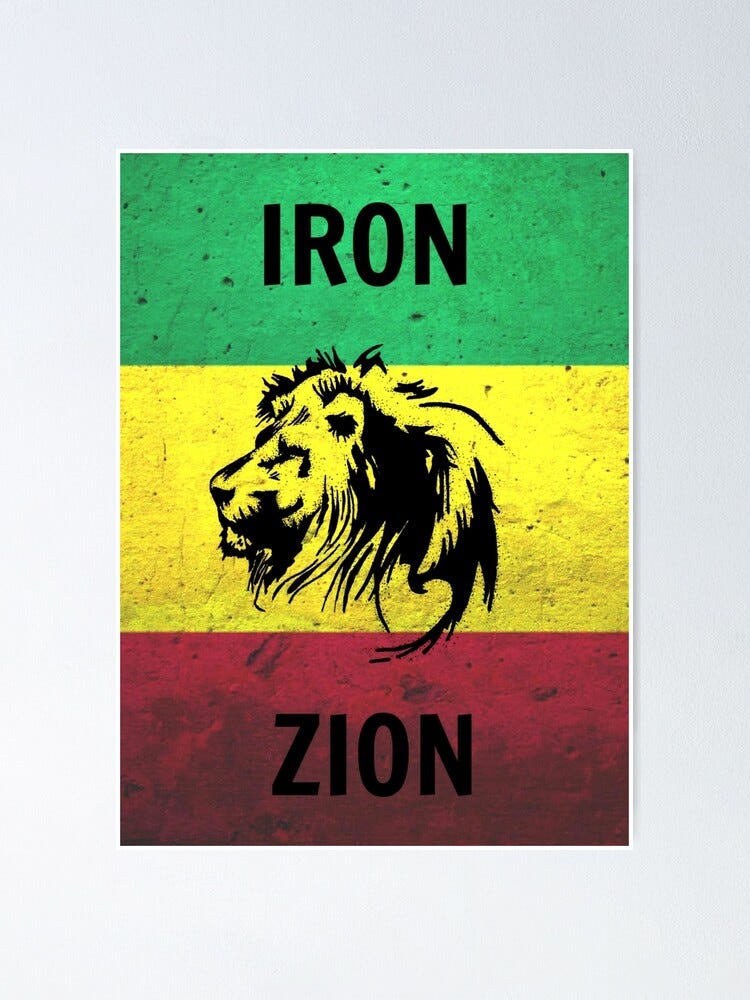
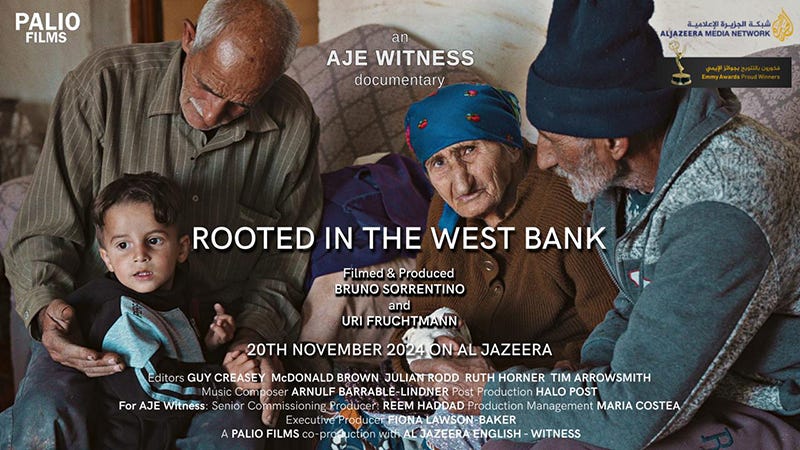
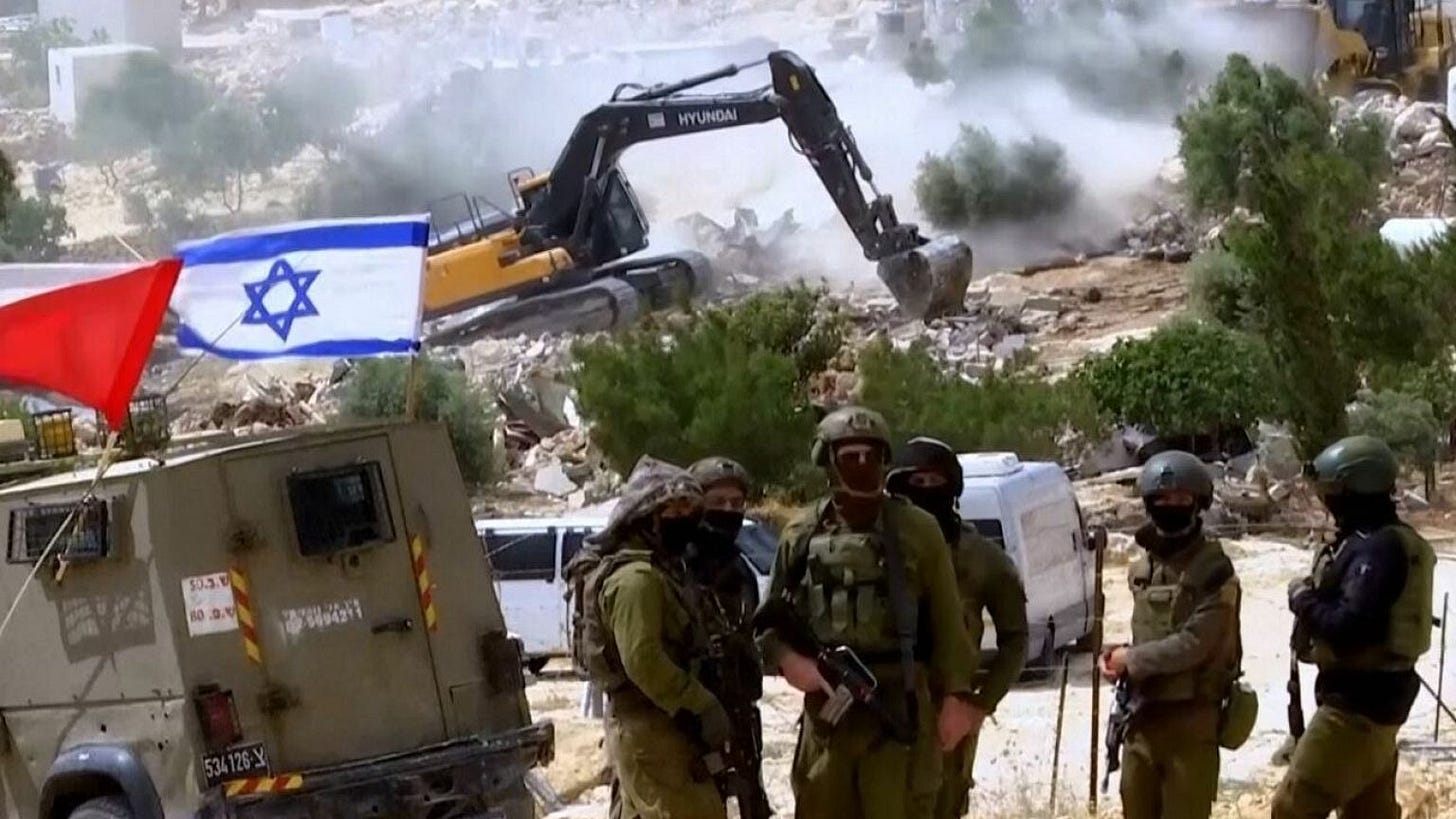
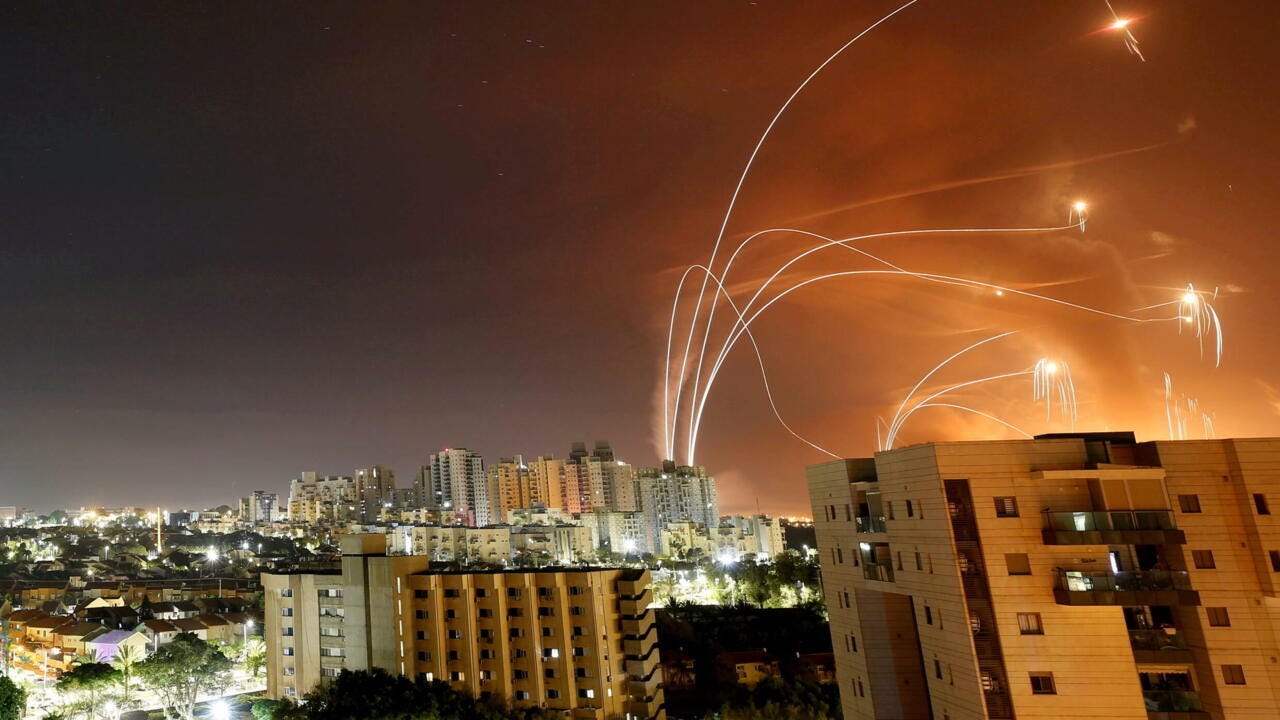



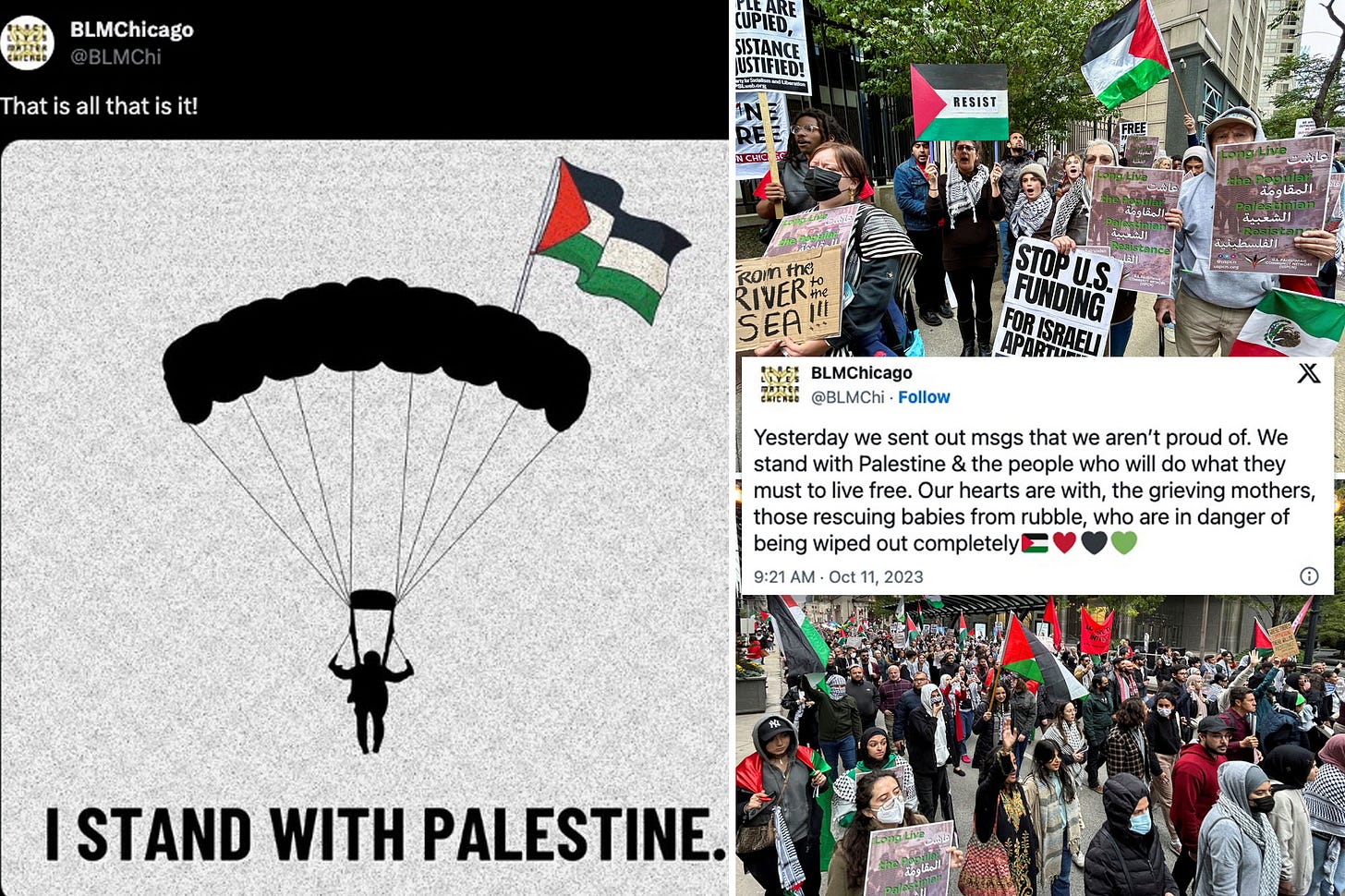
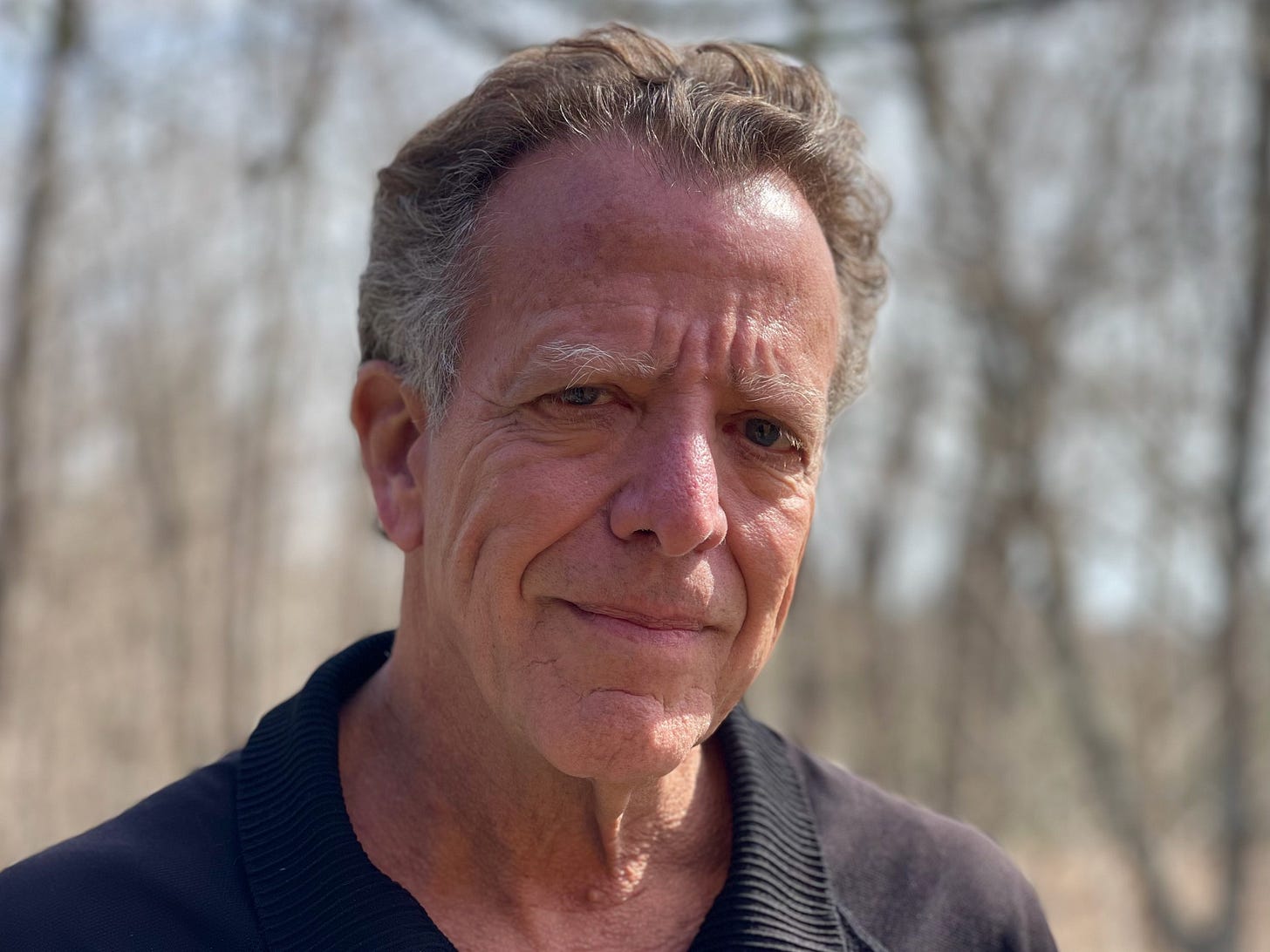

(cont'd from prior comment post)
As for the helicopter incident, I would want to learn the facts before publishing that story – so that I could at least include what I (perhaps naively?) believe were extenuating circumstances. The building may have had civilians on the roof, but it was also likely a legitimate military target. I am not justifying the strike, but just raising the question of why you included it (and likely not in its entirety). Same with the undercover military squads. Every military in the world attempts to infiltrate the enemy with undercover units posing as locals. In Israel, they exist in order to make arrests or to kill terrorists in the process of preparing attacks, not to go after and kill political enemies.
If you have not seen the drama series, “Fauda,” that does a decent job at exploring the nuance and moral quandaries inherent here, I highly recommend it. Bottom line, the way you wrote this feels to me more emotional than the rest of the article and I think you are too quick to call these extra-judicial “death squads” and hold them in such clear contempt.
A note about your discussion of the different forms of anti-semitism. I very much appreciate you asking for people to stop conflating anti-Semitism with anti-Netanyahu or his policies. It would be wonderful if they did stop. But, in practical terms, anti-Semitism has always, and will likely continue to exist on both sides of the left-right/liberal-conservative spectrum. The differences have no meaning, because in my view, right and left political extremes do not exist on a linear plane. Rather, at their most extreme, they meet at the two ends of a circle to form an insidious alliance of intolerance and violence – inevitably seizing on Jews as a scapegoat for whatever ills they see themselves as victims of (e.g. Nazi Germany).
In other words, as a Jew, I don’t care why they hate me. I fear both those who see me as a white-elite occupier and as a Christ-killer. With all that said – I absolutely agree that it is wrong for those who use arguments against anti-Semitism to justify this Israeli government’s policies.
A couple more points. I completely agree with and appreciate your statement that we can both, “have supported precision strikes to eradicate Hamas and Hezbollah, and still draw a line 18 months later at the wholesale devastation, blockades and humanitarian crisis in Gaza and the West Bank.”
With that, I think it is important to recognize that from Israel’s perspective, the world did not, as you argue, stand with us for a few months after October 7th and is only now turning on us. From our point of view, the world turned against us as soon as October 8th, long before our troops went into Gaza. Yes, we saw some sympathy and diplomatic room to manoeuver from several governments, but what the typical Israeli saw was the immediate reaction on social media and on college campuses condemning us. Rallies calling to “Free Palestine” and “From the River to the Sea” in London and New York. UN leaders had to put the attack “in context.” West Bank Palestinians celebrated in the streets and polling showed their overwhelming support of the attacks. South Africa filed its formal complaint of “genocide” to the ICJ in December 2023, not 18 months after the war began.
It is important to understand that the Israeli mentality, especially following October 7th, has been one of living in fear under existential threat. We have a very strong tradition of political protest, as demonstrated in the 10 months prior to October 7th. Yet, none of us were protesting the war in its first year because we mostly saw it as justified – not for revenge as you imply in the article, but in order to root out the perpetrators so that they will not be able to do it again. We recognize the dilemma of fighting an urban war against a guerilla enemy that actively tries to put its own civilians in harm’s way. But because of our own fear, it became easier to look the other way at Palestinian civilian suffering.
And we still largely believe that the culpability for those civilian deaths is on Hamas and not us. I still wish for the death of every single member of Hamas or IPJ who took part in the October 7 attack. I just prioritize diplomacy and getting our hostages back over continuing the war at this point. And I certainly hope we can attain the expulsion of the Hamas leadership from Gaza as part of any end-result.
Now, of course, many of us are outraged at this government and at Netanyahu – even those who supported them before the war. We see that Bibi needs to keep this war going – not, primarily because it is keeping him out of prison as you claim, but because at its conclusion, there will be no way for him to prevent a formal commission of inquiry into the events of October 7th. That commission will inevitably find him responsible and force his government to fall. Bibi sees himself in historic terms, as a great leader of the Jewish People and the Jewish State. He needs to protect his legacy at all costs. Unfortunately, both we Israelis and the Palestinians are paying the price.
Hoping that this all lands with you as I intend it, with an open heart and with deep thought about issues intimately relevant and personal. As I wrote, I agree with your overall premise and appreciate you taking a stab at this incredibly complex set of problems. Ultimately, I am doing what I can to heed your call to “do better” and hope everyone else who reads your piece will as well. It is no easy task, and not in anyone’s comfort zone, but if I have learned anything in my 58 years, it is that the things really worth doing make us uncomfortable.
If you have the time, I would love to hear your thoughts in response.
Best,
Evan"
The whole time I was writing this, was thinking of an American friend who now lives in Israel and consider himself a "Progressive Zionist." I sent him a pre-pub draft and asked for his comments. Feel like they were such a well-argued counterpoint to my original piece that it would be worth a read for anyone interested in this broader topic and/or who felt my essay missed or elided certain critical points.
"Given that your viewpoint on, and articulation of history and current events almost always resonate with me, I was not surprised to completely agree with the overall sentiment of your article. In my understanding, the gist of your argument is to point out the need to move away from the extremes and find a better way for settling our disagreements, no matter how deeply rooted or justified we feel we are.
Empathy for the “other”, as a protagonist, and for both sides if you are an outside observer or mediator, are always critical in understanding and eventually helping to resolve any conflict. And clearly, a giant missing piece in our conflict is the need to humanize the “other,” to recognize their suffering and point of view and acknowledge where our own side is culpable. So, as difficult as it is to acknowledge where my “side” has gone way off the deep-end in creating completely unjustified suffering, I appreciate that the documentary and your article both do those things. Thank you. I hope that your article will motivate many people to “do better.”
With that said, I would suggest several nuanced changes.
Your introduction describing the suffering and humiliation the Palestinians have faced over the years at the hands of Israeli settlers (and the army) seems to be, at least in part, in order to make the point that this is the reason for the radicalization of the Palestinians. It is “inevitable” you say, that there is terror and that Hamas did what it did because of Palestinian suffering. I would point out, however that the rejectionism and radicalization of the Arabs and Palestinians pre-dates any suffering they may have faced at Israeli hands. There was Arab terror long before Israel “occupied” the West Bank and Gaza in 1967. An example of this pre-dates by almost 20 years the creation of the state itself. This is the massacre in 1929 of the Jews of Hebron, a city in the heart of the West Bank, whose families had been living there peacefully for millennia.
And I am not bringing this up to compare or “one-up” the suffering of one side over the other. I simply use this as an example for why I see the conclusion you draw in your introduction as problematic. And this does not even touch upon the longer conversation necessary to get into the vast differences between grievance-based violence/terror and the religiously-motivated, messianic-based terror of Hamas… Not to mention how the fact that Hebron was a Jewish city before 1929, but free of Jews from then until 1967, demonstrates how, as you correctly point out, the situation and history is very complex indeed.
I also think the way you set up the very premise of what I see as your main argument calling for a middle ground between extremes, as problematic. You equate “anti-Semitic pro terrorism” and “patriotic pro-Zionism”. Your readers may conclude or infer from this that being a patriotic pro-Zionist, (as I consider myself, by the way), is the flip side, and “just as bad” as being an anti-Semitic supporter of terrorism. As you acknowledge a few sentences later, one can criticize Bibi and his policies while still accepting Jewish national rights. Why not put “radical” or “right-wing Israeli settler” on the other side of that equation so that “Zionism” can still be accepted as a normal, mainstream movement of Jewish national rights just like any other national right’s movement, including Palestinian?
Within your list of “hopefully non-controversial facts”, you include, “You can unequivocally support the right to a Jewish state (soft Zionism) while rejecting plans to expel all non-Jews from the region (hard Zionism).” I personally have never heard the terms “soft” and “hard” Zionism, but I think “radical Zionist” is much more accurate and descriptive than “hard Zionist”. As you know, about 22% of Israel’s population (not the West Bank and Gaza) are non-Jewish, full citizens of Israel – with representation in Parliament and even on the supreme court. Yes, there is still racism and yes, there are fringe, radical voices calling for expelling even them, but at least for now, those voices remain on the fringe of Israeli society.
As for the Palestinians in the West Bank and Gaza, you would be correct in claiming that more Israelis would be in favor of expelling them – and that sentiment gained a much larger following because of the attacks of October 7th and the support the West Bank Palestinians expressed for them.
And this brings me to a broader point about your article. While your list of hopefully non-controversial facts (all of which I agree with – with the added nuance I describe above), calls for empathy and reasoned consideration from both sides, much of the remainder of your article seems to highlight the wrongheaded thinking and actions of one side – the radical settler movement and the Netanyahu government’s policies in fighting the war in Gaza, not to mention the story of the helicopter pilot and the undercover units being treated with MDMA. Perhaps it is because we Israelis are seemingly in a position of power – certainly in comparison to Palestinians – and thus it is only natural to rail against that side more vociferously.
But, while Daniella Weiss’ views are abhorrent, they are also the fringe of the fringe. There are not many Jews who claim that the Land of Israel stretches from the Euphrates to the Nile. So what is the point of quoting her so extensively? We can easily find just as many Palestinian voices (and I am sure a higher percentage of their population) supporting their own rejectionist version of “God gave this to us first and therefore…” Not to mention, the entire liberal world (from mainstream media to college campuses) seemingly calling for or supporting those who do call for a “Free Palestine - From the River to the Sea.” I assume you know this, but just in case, I and every Israeli I know hears that phrase as a call for wholesale extermination of the Jews in Israel.
(cont'd)